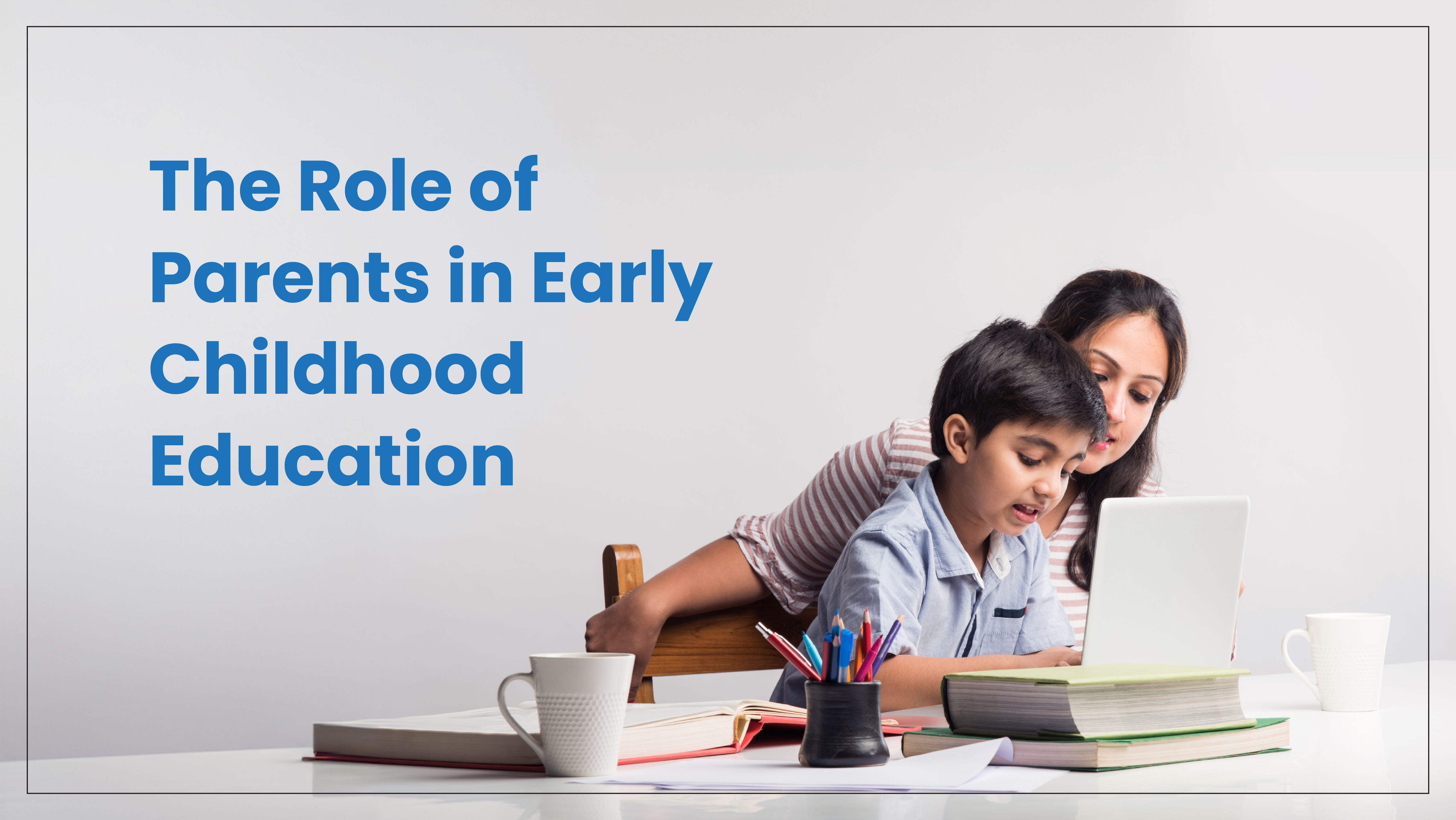Early childhood i.e. from the age of 3 to 8 years, education is a pivotal time in a child’s development. It lays the foundation for future learning, behaviour, and health. While educators play a significant role, the involvement of parents is equally crucial. The role of parents in early childhood education is multifaceted and vital for fostering a supportive and enriching learning environment.
Here’s why parental involvement is so important in early childhood and how parents can actively contribute to their child’s educational journey.
9 Essential Roles Parents Play in Early Childhood Learning
Here are nine crucial roles that parents play in their children’s early education:
1. Building a Strong Learning Foundation at Home: Parents are a child’s first teachers. From the moment a child is born, they begin to learn from their parents through observation and interaction. Simple activities such as reading books, singing songs, and engaging in play are foundational elements of early childhood learning. These interactions help develop language skills, cognitive abilities, and emotional understanding.
2. Fostering an Interest for Learning: When parents show enthusiasm and interest in their child’s education, it fosters a positive attitude towards learning. Parental involvement in early childhood education sends a strong message that learning is important and valued. This positive reinforcement encourages children to take an active interest in their educational activities and nurtures a lifelong love for learning.
3. Enhancing Social and Emotional Development: Parents play a crucial role in early childhood learning by providing a safe and nurturing environment where children can develop social and emotional skills. Through consistent support, guidance, and affection, parents help children learn to express their emotions, develop empathy, and build healthy relationships with peers. These skills are essential for success both in and out of the classroom.
4. Establishing Routines and Discipline: A stable home environment with established routines and discipline is vital for young children. Parents help create a structured environment where children know what to expect and feel secure. This sense of stability fosters a child’s ability to focus, learn, and develop healthy habits. Regular routines for meals, bedtime, and playtime not only provide a sense of order but also help children understand the concept of time management and responsibility. Consistent discipline, paired with positive reinforcement, teaches children the difference between right and wrong, helping them develop self-control and respect for others. Through these practices, parents lay a strong foundation for their children’s future academic and social success.
5. Supporting Learning Outside the Classroom: The role of parents in early childhood education extends beyond the classroom. Engaging children in educational activities at home, such as playing educational games, visiting museums, or exploring nature, reinforces what they learn in school. These experiences enrich a child’s understanding of the world and provide practical applications of classroom knowledge.
6. Communicating with Educators: Effective communication between parents and educators is essential for a child’s educational success. Parents who actively communicate with teachers can stay informed about their child’s progress, strengths, and areas needing improvement. This collaboration ensures that both parties can work together to provide the best possible support for the child’s development.
7. Modelling Lifelong Learning: Parents who demonstrate a commitment to their own learning and personal growth model positive behaviour for their children. Whether it is reading books, taking a class, or engaging in new hobbies, parents who are lifelong learners inspire their children to adopt a similar mindset. This attitude is beneficial for children’s academic and personal development.
8. Encouraging Independence and Responsibility: As children grow, it is important for parents to encourage independence and responsibility. Giving children age-appropriate tasks and responsibilities helps them develop self-confidence and problem-solving skills. Parents who support their children in taking initiative and making decisions contribute significantly to their overall development.
9. Providing Emotional Support and Encouragement: Parents play a crucial role in offering emotional support and encouragement. Celebrating success, providing comfort during setbacks, and maintaining a positive and supportive attitude help children develop resilience and self-esteem. This emotional foundation is essential for children to navigate the challenges of early education and beyond.
The role of parents in early childhood education cannot be overstated. Parental involvement is a key factor in a child’s academic and social success. From building a strong learning foundation at home to fostering a positive attitude towards learning and supporting social and emotional development, parents play a vital role in shaping their child’s educational journey.
Understanding why parental involvement is so important in early childhood helps parents take an active and intentional role in their child’s education. By creating a supportive home environment, engaging with educational activities, and maintaining open communication with educators, parents can significantly enhance their child’s early learning experiences. This involvement helps children develop into well-informed and confident individuals. Parents who actively participate in their child’s education not only support academic growth but also foster emotional and social development, ensuring that their children are well-equipped to navigate the challenges of the future.


Stay connected, stay informed, and thrive with Narayana Educational Institutions!

All the mentioned information if required for further and more understanding
Good article..well said..A parent plays a crucial role in their child’s growth emotionally, educationally and socially…..As a parent I thought it’s responsible to teach our children moral values and ethics as a part of social service…